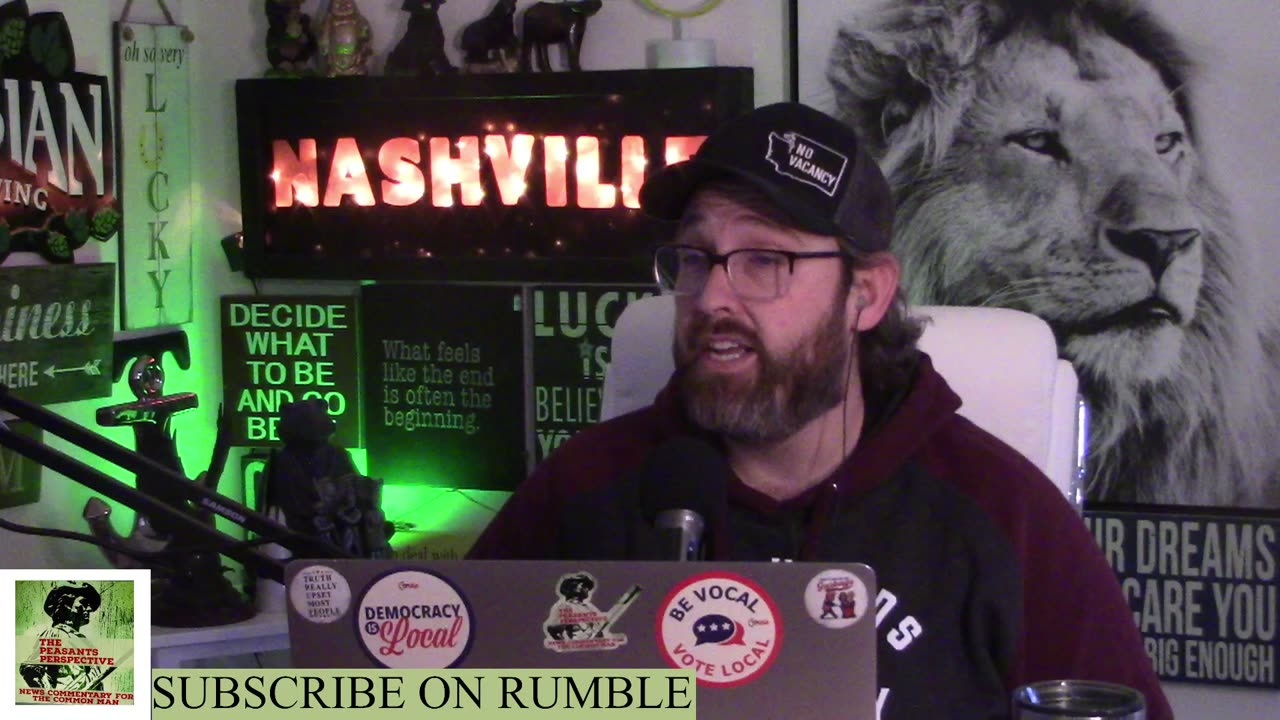Premium Only Content

What Happens When Work Becomes Optional But Purpose Doesn’t
A cloudy D.C. morning sets the stage for a storm of questions: can AI really automate half of America’s work hours, and what happens to purpose if “optional work” arrives before a safety net for meaning does? We walk through the numbers behind automation risk and the roles most exposed, then collide that with a cooler inflation print that seems like good news—until you weigh it against consolidation, layoffs, and the uneasy truth that productivity and stability don’t always move together.
From there, the story shifts to the streets and the servers. Cyber‑enabled cargo theft is no longer a movie plot; it’s a playbook that uses freight marketplaces, hacked credentials, and live vehicle tracking to pick off high‑value loads. We consider how self‑driving trucks could widen that attack surface, and what it would take to harden logistics without stalling innovation. On the public safety front, a Memphis crackdown boasts thousands of arrests and major seizures, while judges and officials spar over tactics and civil boundaries. Trust in institutions dips further with a Minnesota case where a judge overturns a jury verdict, and juror bribery allegations tied to pandemic meal fraud raise the stakes on courtroom integrity.
Politics, meanwhile, becomes a contest over “effectiveness.” Some measure wins by packed dockets and judicial appointments; others by aggressive oversight into weaponization, election integrity claims, and the release of long‑sealed records. We examine how courts are wielded as both shield and sword, and why legal narratives now decide so much of public reality. The geopolitical frame widens with talk of Ukraine peace optics, emoluments accusations, and a sharp argument over Venezuela that folds in cartel designations, warship maneuvers, and the seduction of oil. Across every segment, a single throughline emerges: when technology accelerates faster than accountability, crime adapts, politics lawfares, and citizens lose the plot.
Our goal is to reconnect the dots: AI and jobs, cybercrime and infrastructure, courts and legitimacy, foreign policy and domestic incentives. If work becomes easier to automate, leadership must make purpose easier to find. If we digitize supply chains, we must secure them with the same urgency. And if we demand rule of law, we have to accept transparency even when it challenges our side. Listen, share with a friend who’s weighing optimism against realism, and leave a review to tell us where you see the biggest risk—and the smartest fix.
Support the show
buymeacoffee.com/peasant
-

SilverFox
6 hours ago🔴LIVE - ARC AT NIGHT! COME THRU!
33.9K2 -
 2:46:09
2:46:09
Joker Effect
6 hours agoCLAVICULAR - What the hell is "Looks Maxing"? Asmond Gold is a Demon. KaceyTron. Steve Will do it.
38.8K4 -
 3:31:22
3:31:22
SlingerGames
5 hours agoLIVE - Wumble Wednesday - BIRTHDAY STREAM!
16.5K3 -
 DVR
DVR
StevieTLIVE
6 hours agoWarzone Win Streaking BIG Challenges MASSIVE Hype NO Losses LOCK IN
11.3K -
 5:33:40
5:33:40
FrizzleMcDizzle
8 hours agoThis game is scary AF - RESIDENT EVIL 7
8.09K -
 1:03:47
1:03:47
TheCrucible
10 hours agoThe Extravaganza! EP: 66 (11/25/25)
97.1K15 -
 4:23:35
4:23:35
xxTOWERDOGxx
9 hours ago🦃Wobble Wobble, while you Gobble Gobble 🦃🟢Premium Creator🟢🪒No Shave November🪒
3.94K -
 2:02:38
2:02:38
Blabs Life
9 hours agoPART 4: Peter Jackson's King Kong: The Official Game of the Movie | Noob Plays
20.9K1 -
 1:16:43
1:16:43
BonginoReport
15 hours agoExposing Transgenderism w/ Amy Sousa - Nightly Scroll w/ Hayley Caronia (Ep.186)
137K31 -
 1:58:47
1:58:47
Redacted News
10 hours ago"What I saw in Ukraine SHOOK me to my core" Ukraine is not a democracy, it never was | Redacted
139K94